The Most Secure Messaging Apps in 2026
Keep in mind that such information leaks occur precisely because you do not use secure applications for communication. Despite robust software architecture documentation, many messengers have a relatively simple security system, making it relatively easy for hackers to crack it. Be vigilant and pay attention to the solutions you use to stay connected!
What Makes the Messenger Secure?
The technological capabilities of today allow us to use multiple methods to protect our chats, and they are usually combined to ensure maximum privacy. Many iOS app builder and other mobile application development tools come with robust security features that can be implemented to protect chat data and ensure maximum privacy, forming the foundation for secure applications. The most common and proven security measures are end-to-end encryption, cryptographic protocols, and the degree of centralization. Let’s take a closer look at each of them in order to understand what we are dealing with:
In end-to-end encryption, the transmission endpoints are directly the sender and recipient’s devices. The message is encrypted locally on the sender’s device and can only be decrypted on the recipient’s device. Thanks to this feature, end-to-end encryption prevents servers from potentially reading user data.
A cryptographic protocol is an abstract or concrete protocol that consists of a set of cryptographic algorithms. The protocol is based on a set of rules that govern the use of cryptographic transformations and algorithms in information processing.
With regards to centralization, there are three levels for messaging services: centralized (requiring a dedicated server), federated (a network of servers), and decentralized (where each client is its own server). From a security standpoint, centralization is not the best option. In addition to issues concerning the potential disclosure of user data, there may be issues with the authorities blocking access to the service.
What are the Most Secure Messaging Apps?
The technology market is now full of messengers that promise security and privacy to each user, but often it turns out to be just a marketing ploy to attract more people. That is why we decided to create an article about secure messengers that ensure user privacy. To begin with, let’s look at the most secure platforms that you have likely already heard of:
That is why we decided to create an article about secure messengers that ensure user privacy. Each platform has its own set of unique features that make it suitable for a particular group of people. You can choose the application that interests you, or try to compare multiple solutions.
Top 6 Most Secure and Encrypted Messaging Apps for Enterprises
TrueConf
TrueConf has long established itself as a video conferencing solution with a multi-level security system. The platform includes encryption of media streams and local storage of personal data, as it is deployed within the corporate network.

By deploying TrueConf Server in your company’s network, you gain complete control over your communications without the need for an Internet connection.
The solution also includes AI-powered features, such as blurring or replacing the background and creating a detailed transcript of the online meeting.
Key Security Features of TrueConf:
- Self-Hosted Deployment: TrueConf can be installed on your organization’s own servers, ensuring that all communications and data remain within your controlled environment.
- End-to-End Encryption: Utilizes AES-256 encryption for media streams and TLS 1.3 for data transmission, safeguarding communications from unauthorized access.
- Compliance with International Standards: TrueConf adheres to ISO 27001, GDPR, and HIPAA standards, making it suitable for industries with strict regulatory requirements.
- Offline Functionality: The platform can operate within a closed LAN or VPN, allowing for secure communication even without an internet connection.
- Advanced Access Controls: Features multi-factor authentication (2FA), user roles and permissions management, and IP address restrictions to enhance security.
- Data Leakage Protection (DLP): Includes mechanisms to prevent unauthorized data transmission and potential leaks.
This solution is ideal for companies or teams that interact remotely and prioritize reliability. This is due to the fact that TrueConf is constantly improving its security system and carefully preserving user data.
Take your team communication to the next level with TrueConf!
Connect from mobile, desktop, or meeting rooms and enjoy secure video conferencing, collaboration tools, and team messaging for up to 1,000 self-hosted users—completely free.
Bitrix24
Bitrix24 is an all-in-one business platform that combines task and project management, team communication, CRM, document collaboration, and even website builder tools within a unified ecosystem. Widely recognized for its robust functionality, Bitrix24 also delivers enterprise-grade data protection features.
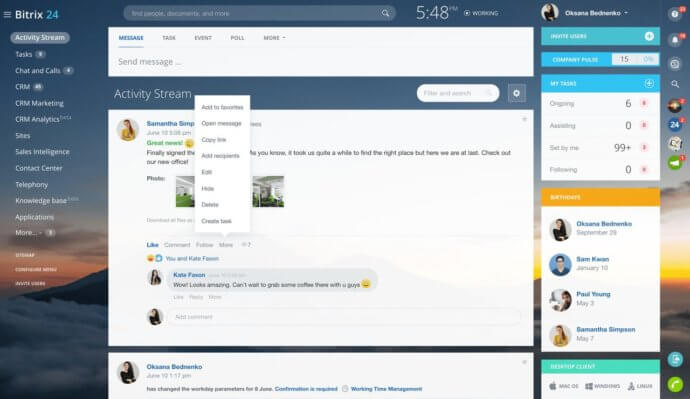
The platform supports task tracking, project timelines, group chats, video conferencing, telephony, and email automation. Its native CRM integrates seamlessly with the rest of the workspace, while team members can collaborate in real time via shared calendars, address books, and document tools.
While Bitrix24 offers a free plan, it comes with limitations in storage, user count, and access to advanced features such as marketing automation, custom workflows, and extended CRM analytics — which may be insufficient for growing teams or complex business processes.
- Bitrix24 encrypts data in transit using SSL/TLS with 256-bit keys, and stores user data securely in certified data centers. The On-Premise edition allows organizations to deploy Bitrix24 on their own infrastructure, enabling full control over data location, access policies, and advanced encryption options at the storage level.
- Bitrix24 supports GDPR compliance and, in its On-Premise version, can be configured to meet additional industry regulations through audit logs, role-based access control, and custom data retention policies.
- The platform includes multi-factor authentication (2FA), customizable role-based permissions, IP address restrictions, and session management tools, ensuring fine-grained control over user access and identity security.
Threema
Threema is a secure communication solution that supports end-to-end encryption and works across all major platforms. It enables users to exchange text and voice messages, as well as create encrypted group chats for up to 50 participants. Personal information is stored locally on the device, while the central server retains only minimal metadata.
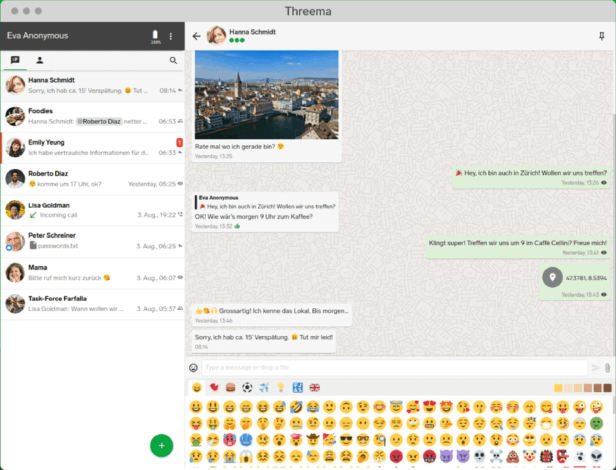
Instead of requiring a phone number or email, Threema assigns a random ID upon installation, allowing for anonymous use. Linking a phone number is entirely optional and used solely for contact synchronization with user consent. Users can also verify each other’s identities by scanning QR codes, adding an extra layer of trust. Developed in Switzerland, Threema has undergone independent security audits to validate its strong privacy practices.
- End-to-End Encryption: All messages, voice and video calls, group chats, files, and even status updates are end-to-end encrypted by default using the NaCl cryptographic library, ensuring complete confidentiality.
- Swiss Jurisdiction and GDPR Compliance: Based in Switzerland, Threema operates under strict Swiss privacy laws and complies fully with the EU’s General Data Protection Regulation (GDPR).
- Enterprise Options (Threema Work & OnPrem): For organizations, Threema offers centralized user management, LDAP/MDM integration, remote wipe, and the option for complete on-premise deployment.
Rocket.Chat
Rocket.Chat is a popular private messaging application for various platforms. The solution provides users with the opportunity to interact not only in personal and group chats. Rocket.Chat’ features also include file sharing, video conferencing, and launching bots.
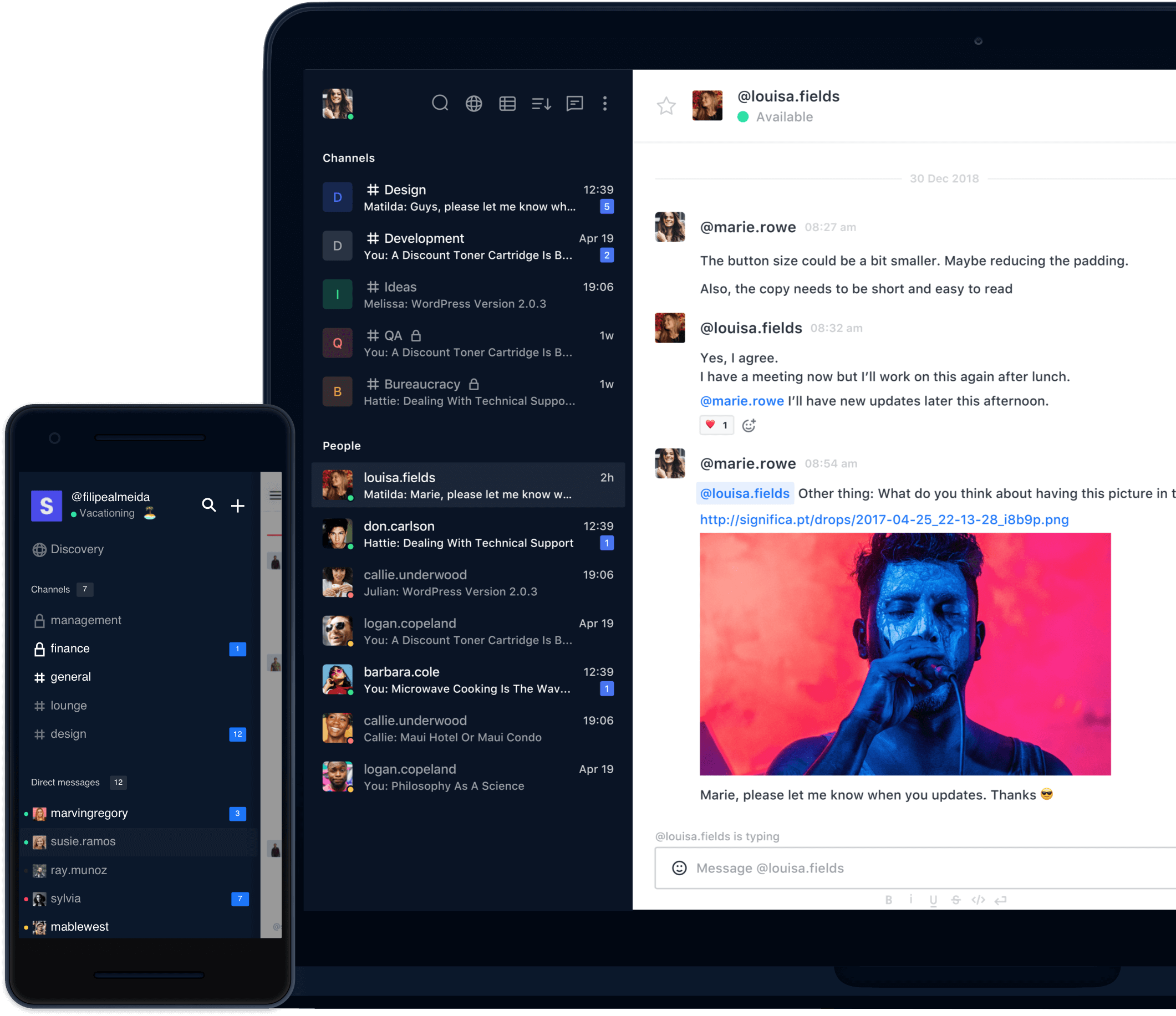
Rocket.Chat can be deployed on-premises, in private clouds, or hybrid infrastructures, giving organizations full control over their data.To ensure confidentiality, the developers of Rocket.Chat’s open-source nature allows full code inspection and system logging, giving organizations the ability to audit and monitor communications for compliance and security.
Initial setup and configuration can be complex, particularly in self-hosted environments requiring frequent use of the admin panel.
- Self-Hosted Deployment: Rocket.Chat can be deployed on-premise, in a private cloud, or in air-gapped environments, giving organizations full control over their data and infrastructure.
- End-to-End Encryption: Offers optional end-to-end encryption for messages and files, ensuring that only intended recipients can access the content.
- Compliance with International Standards: Rocket.Chat supports compliance with GDPR, HIPAA, ISO 27001, and FINRA standards, making it suitable for regulated industries such as healthcare, finance, and government.
- Federation and Interoperability: Enables secure communication across organizations using federation protocols (Matrix, Federation Gateway), allowing integration with other compliant platforms.
- Advanced Access Controls: Supports granular role-based access permissions, two-factor authentication (2FA), and enterprise identity integrations like LDAP, SAML, OAuth2, and Active Directory.
Element
Element (Matrix) is a secure, open-source messaging platform built on the decentralized Matrix protocol. It enables private and group communication through text messaging, file sharing, voice and video calls. Element is available across all major platforms — Windows, macOS, Linux, Android, and iOS.
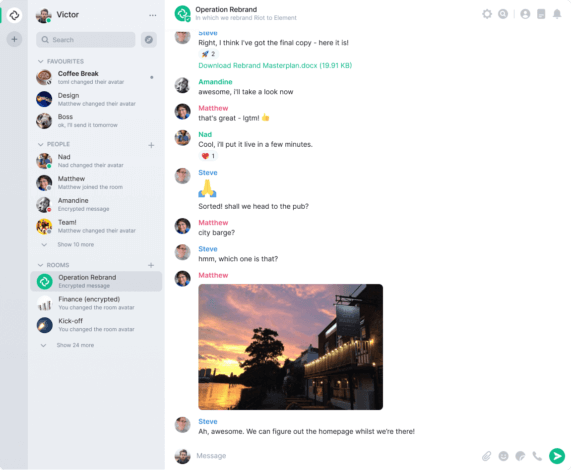
Element’s foundation on the Matrix protocol allows users to register on any public server or run their own. This federated and decentralized architecture grants full control over data storage, privacy policies, and infrastructure security.
- Organizations can deploy Element on-premises by running a private Matrix homeserver such as Synapse, ensuring complete control over communication data, compliance, and integration policies.
- Element supports integration with other platforms via bridges — enabling cross-platform communication with services such as Slack, Telegram, IRC, and more. This makes it a flexible choice for secure collaboration in both personal and professional contexts.
Messagenius
Messagenius represents a reliable enterprise messaging system crafted for confidential, regulatory communication inside businesses. Unlike numerous generic solutions, it was intended for on-site deployment, letting enterprises retain total authority over their systems, storage, and identity controls. Messagenius functions across Android, iOS, plus desktop environments.
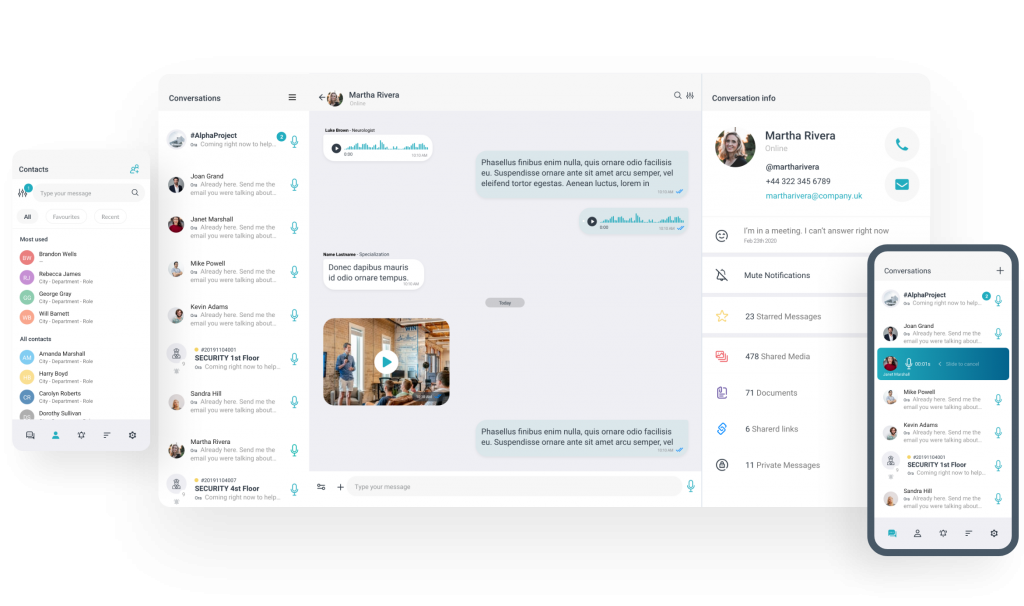
Created with emphasis on operational team workflows, Messagenius enables protected discussions, content transfers, audio interaction, and encrypted distribution. All content gets preserved locally or on the client’s secure environment, supporting conformity with internal guidelines and frameworks like GDPR.
The system remains entirely adaptable to suit evolving team processes and defense expectations. Managers may configure identity levels, impose interaction rules, and introduce components like timed message removal, delivery indicators, or duty scheduling. This renders it perfect across domains that demand robust information oversight, including medicine, administration, and banking.
Messagenius avoids dependence on external infrastructure or individual mobile identifiers during enrollment, removing several typical exposures seen among public messaging networks. Its private, business-centered design guarantees every exchange stays under an organization’s supervision — establishing Messagenius as an effective alternative for protected, extensible teamwork in high-security scenarios.
Top 8 Secure Consumer Chat Apps
NetSfere
Another communication solution that excels within the private messaging space is NetSfere. Developed for corporate environments, this platform blends sophisticated encryption with enhanced administrative tools, presenting it as a reliable selection for businesses that emphasize information security.
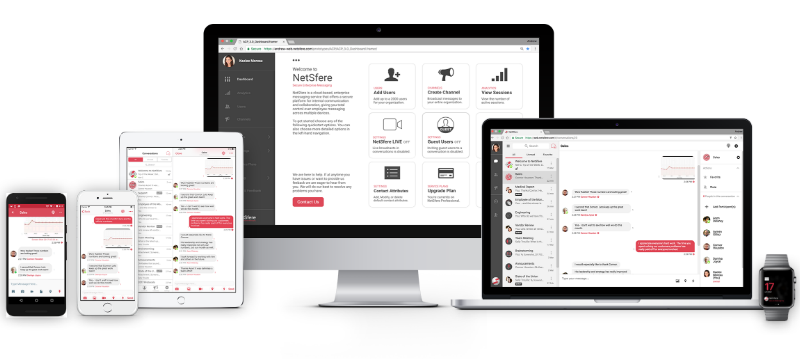
In contrast to standard consumer platforms, NetSfere remains proprietary software, yet it balances this by offering enterprise-level protection — featuring comprehensive 256-bit encryption and even quantum-secure protocols designed to safeguard communication for the future. Compatible across desktop, iOS, and Android systems, it enables messaging, audio and video conferencing, along with screen broadcasting — all maintained under rigorous adherence to international frameworks like GDPR and HIPAA.
Among NetSfere’s standout advantages is its collaboration with AI. The system features Net-C, a smart assistant capable of helping teams retrieve and manipulate organizational content using conversational language — consistently operating within the limits of defined security guidelines.
Still, NetSfere is primarily engineered for organizations rather than casual users. It demands company-based deployment, and individuals are unable to simply install and begin conversations the way they might with Signal or WhatsApp. For independent users seeking immediate privacy solutions, this could represent an obstacle. Nevertheless, for corporations pursuing absolute governance over internal dialogues, NetSfere firmly delivers.
Line
Another widely used app in the secure messaging space is Line. Originally launched in Japan, Line combines instant messaging with a broad set of social features, making it both a communication tool and a lifestyle platform. It is available on iOS, Android, and desktop, and supports free messaging, voice, and video calls.
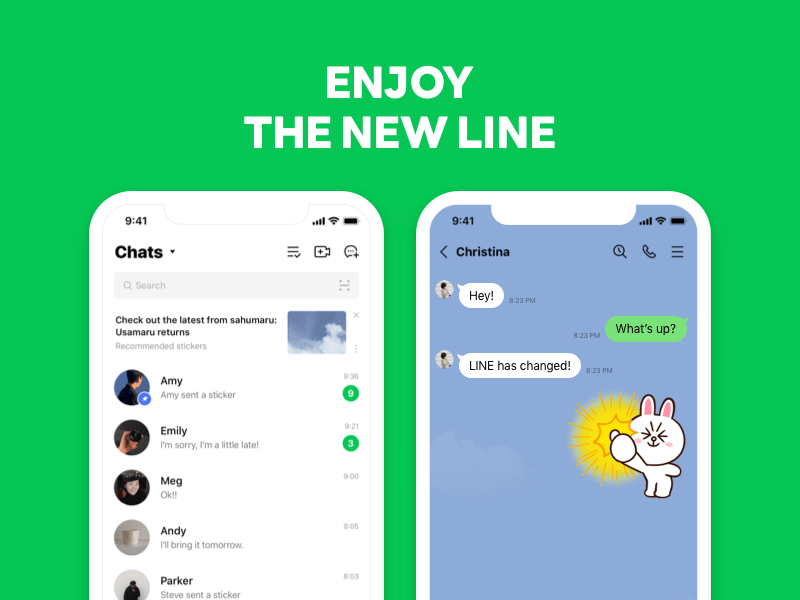
Line includes a number of privacy-friendly features, such as hidden chats, where messages are encrypted and set to disappear after a chosen period of time. Users can also share images, videos, and voice notes securely, and the app provides an additional layer of protection through passcode locking and optional end-to-end encryption for individual conversations using a feature called “Letter Sealing”.
However, unlike some privacy-first apps like Signal, Line is not open source. This means that its encryption methods can’t be independently verified by the public. In addition, while Letter Sealing is available, it’s not enabled by default for all users, which can leave some communications less protected if users are unaware.
Another limitation is that Line also requires a phone number for registration, which may be a concern for those seeking full anonymity. While it does offer strong privacy options, its focus is more on convenience and social connectivity than maximum privacy — making it a solid option for everyday use, but perhaps not ideal for those with heightened security needs.
Signal
Another one that has proven itself as one of the safest is the Signal application. The popular non-profit platform also allows you to exchange messages and make online calls. At the same time, Signal is open source and is available for personal computers, as well as iOS and Android.
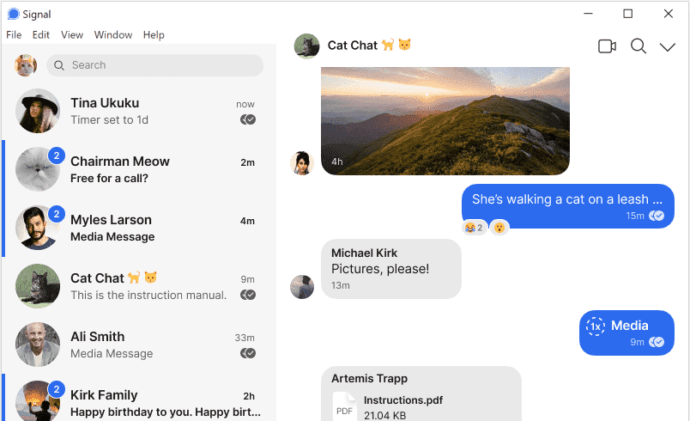
For example, Signal has the ability to create stories that disappear after 24 hours, as well as share one-time photos and videos. As for privacy, all chats are stored on users’ devices, thus greatly reducing the likelihood of leakage. Messages can also be made safer by setting a self-destruct timer.
However, one of the potential disadvantages of Signal for many users is the requirement of a personal phone number for registration. Since registration requires a phone number, full anonymity is limited — though Signal does not link numbers to personal identities or store metadata.
Wire
Wire is a private tool designed to replace emails with instant messages. Thanks to this solution, you can create encrypted chats for up to 120 participants, organize virtual video meetings for up to 10 participants, and share files and locations.
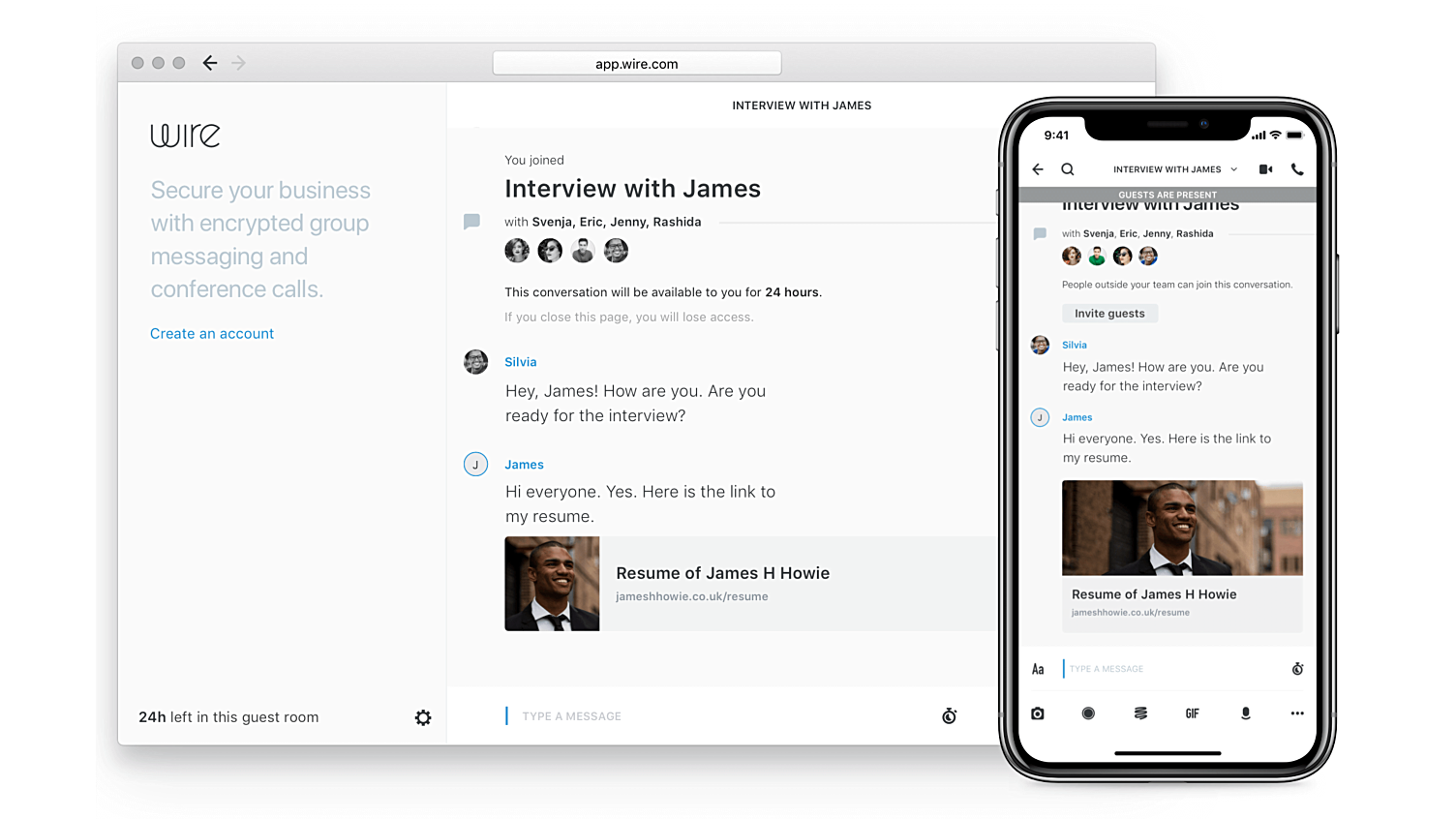
Wire stores user data locally and encrypts it using end-to-end encryption. Messages are temporarily stored on Wire’s servers and deleted after delivery or expiration, depending on configuration. The developers claim that they use WebRTC with Forward Secrecy (PFS) to ensure the privacy of online calls.
Wire allows registration via email, without requiring a phone number, enabling pseudonymous use.
- End-to-End Encryption: All messages, calls, files, and video meetings are protected with strong E2EE by default — using the Proteus protocol, based on Signal Protocol.
- Zero-Knowledge Architecture: Wire’s servers have no access to your messages or encryption keys — all decryption happens client-side.
- European Hosting & GDPR Compliance: Wire is based in Germany & Switzerland and is fully GDPR compliant. You can choose between EU cloud or on-premise deployment.
Dust
Dust is a privacy-focused mobile messaging platform for private communication. The solution enables you to send messages with end-to-end encryption, make secure calls for free, and share texts and pictures with multiple contacts simultaneously. Additionally, Dust can utilize its secure synchronization function to find other users to chat with or to invite a participant from your address book to a chat.
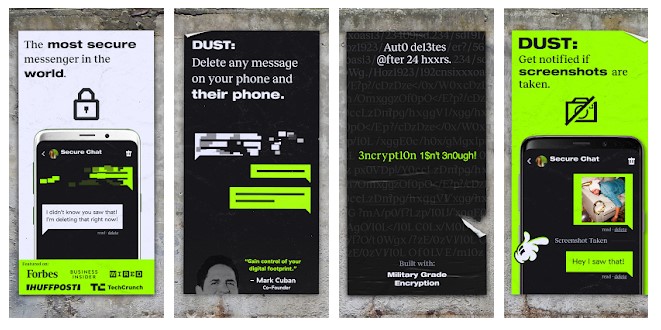
One of the main advantages and disadvantages of this solution is that messages are automatically deleted after a period of time, up to 24 hours, without the possibility of recovery. If your conversation partner takes a screenshot of the chat, you will receive an instantaneous notification.
- No Permanent Storage: Dust does not store messages permanently on servers or devices. Once messages disappear, they are completely deleted from the system.
- Anonymous Communication: Users are identified by aliases instead of phone numbers or real names, providing a layer of anonymity and protecting personal identity.
- Message Unsend Capability: Users can delete previously sent messages at any time — even after they’ve been read — removing them from both sides of the conversation.
- Screenshot Detection Alerts: The app detects and notifies users if someone attempts to take a screenshot of a chat, offering an extra layer of message protection.
Utopia
Utopia is positioned as a decentralized ecosystem for anonymous communication, data transfer, and financial transactions. The platform has a decentralized system that protects personal information from potential leakage to third parties.
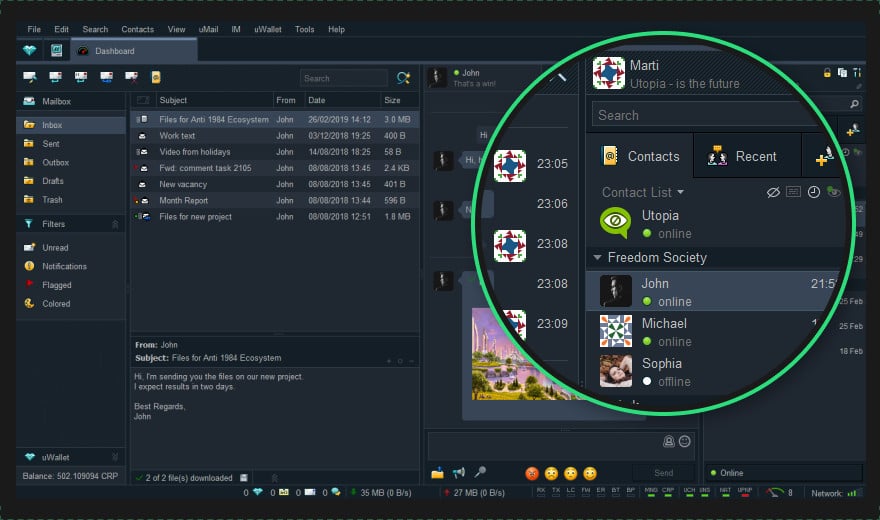
The platform anonymizes communication within its own ecosystem, including hiding user IP addresses from peers. The platform utilizes Elliptic Curve25519 and 256-bit AES encryption to protect data. The Utopia functionality is quite interesting: in addition to the built-in messenger, it allows users to make transactions using an anonymous wallet and cryptocurrency. The platform also offers to launch special bots to earn cryptons. Utopia anonymizes not only your data, but also your IP address, thus allowing you to maintain complete confidentiality. Upon registration, Utopia generates a cryptographic key pair. The user’s identity is derived from the public key, ensuring pseudonymity and secure authentication.
Unfortunately, there is still very little content available in Utopia, and information is only exchanged when all participants are online, which can be very inconvenient.
- Decentralized Infrastructure: Utopia operates on a peer-to-peer network without central servers, which eliminates single points of failure and significantly reduces the risk of third-party data interception or leakage.
- Anonymous Identity Management: Usernames are generated as private keys during registration, removing the need for phone numbers, emails, or personal information — allowing for fully anonymous communication.
- IP Address Masking: The platform anonymizes user IP addresses and routes data through a secure decentralized network, preventing tracking and location detection.
- Built-in Anonymous Financial System: Utopia includes an integrated crypto wallet and crypton-based currency for secure, anonymous transactions within the ecosystem.
- Offline Communication Limitation: Utopia requires all parties to be online for message delivery, which enhances peer-based security but can reduce convenience.
Delta Chat
Delta Chat is a unique privacy-oriented messenger that uses the existing email infrastructure (IMAP/SMTP) as its transport layer, effectively turning your email account into a secure chat platform. It works on Linux, Windows, macOS, Android, and iOS, making it accessible across all major devices.
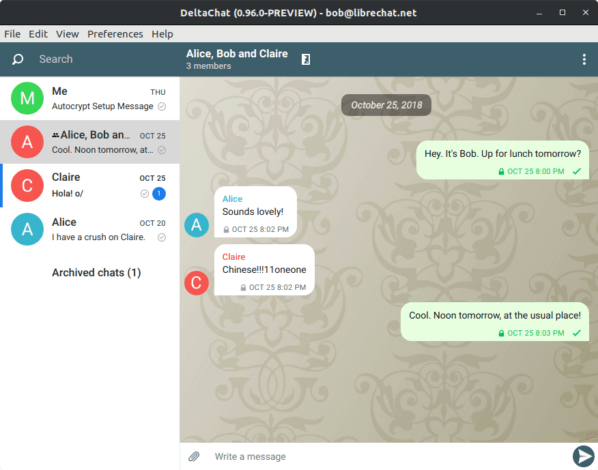
Users log in with their email address, and can exchange messages with anyone who has an email, regardless of whether they use Delta Chat. All messages are stored locally on the user’s device, and no centralized servers are involved. For encryption, Delta Chat uses the Autocrypt standard, which automatically exchanges keys after the first message is sent.
Features include group chats, sending media attachments, read receipts, and optional message auto-deletion timers. However, if a recipient’s email app does not support Autocrypt, messages will be delivered in plain text.
Delta Chat is fully open source and actively maintained, allowing for public audits, transparency, blockchain development, and community-driven improvements.
Briar
Briar is a free, open-source messenger for Android that prioritizes privacy and resilience in offline or restricted environments. Briar uses peer-to-peer connections over Bluetooth or Wi-Fi, allowing messages to be exchanged even without Internet access.The platform has a decentralized network scheme that works via Bluetooth technology or Wi-Fi if the Internet is disconnected. When connected to the Internet, Briar routes traffic through the Tor network to protect user anonymity.
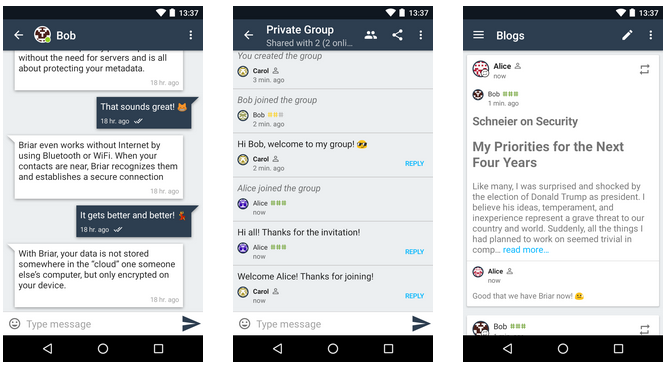
To ensure complete privacy, the platform offers users a “hidden mode” that is activated with a PIN code. In addition to this function, Briar provides the ability to create group chats and maintain a personal blog, which significantly distinguishes it from many similar applications.
However, the platform does not allow you to send voice messages, make online calls, share files, or back up data.
Support Discontinued
Surespot
Surespot is a well-known, free messenger for Android and iOS. To ensure security, the platform implements end-to-end encryption and automatically creates a unique key for each user. The advantage of this approach is that, even if the Surespot server is compromised, attackers will not be able to obtain important personal data.
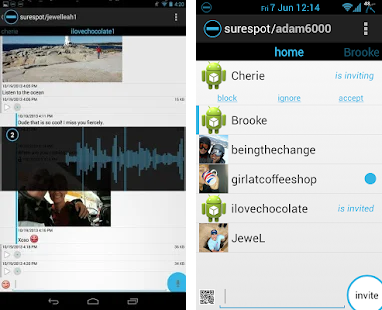
Communication on the platform can be made even more confidential by configuring the sending of messages that self-destruct. Furthermore, if you don’t want your chat history to be saved by your conversation partner, this approach may be the only solution. The fact is that Surespot does not allow you to delete messages after sending, as it would not be possible to destroy the online discussion. It is also impossible to create group chats on the platform.
Unfortunately, the platform was closed on July 31, 2022, due to the company being mentioned in the plea agreement of a 17-year-old US citizen who provided support to ISIS. Nevertheless, everyone can use the code to create his own project.
Wickr Me
Wickr Me is a messenger for PC that allows you to communicate in personal and group chats with up to 10 participants, as well as make online calls and share files. All information on the platform is protected by several layers of encryption, including ECDH521, ensuring secure interaction. Users are also given the opportunity to send disappearing messages, create group secret chats and enable a screenshot detection system.
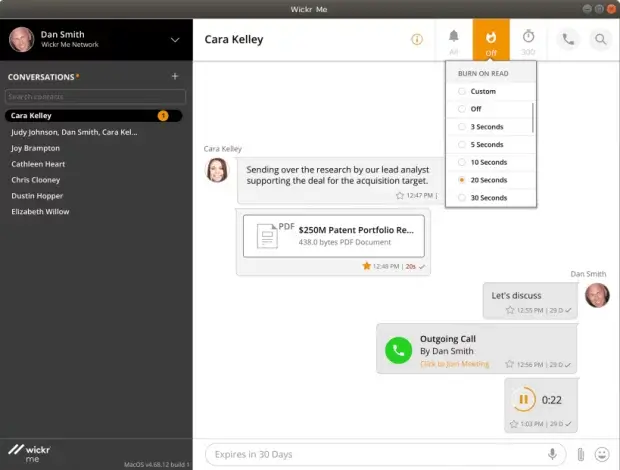
Registering for Wickr Me does not require any personal data, such as mobile phone numbers, and all accounts are anonymous. The creators of the solution also claim that they do not collect any information about users — the only exception is telemetry data, which can be disabled in the settings.
By design, all messages were automatically deleted after six days, making the app unsuitable for users who wanted to maintain long-term conversation history.
Wickr Me was officially discontinued by Amazon in December 2023, with the company shifting its focus to enterprise-oriented products like Wickr Enterprise and AWS Wickr. Although the app is no longer available for download or use, it remains notable for its role in the evolution of anonymous, secure communications.
Future Trends and Developments in Privacy Messaging
Shortly, we can expect to witness some amazing transformations in this field. Some of these could include fresh approaches and modern concepts that aim to make privacy more secure and effective.
AI is becoming more popular in privacy messaging and security protocols. It can classify messages, assess sentiment, and even translate them into other languages. What’s more, AI can help detect and stop spam or phishing attempts, enhancing the overall safety of messaging systems.
To ensure user privacy and promote secure communication in the digital space, it’s essential to implement various tools such as end-to-end encryption, two-factor authentication, and data protection. These features offer a reliable and robust layer of security, allowing individuals to communicate with confidence, knowing their information is well-protected. By prioritizing privacy and implementing these cutting-edge tools, users can be sure that their data is safe from unauthorized access, breaches, or surveillance.
Organizations that provide messaging services should be open and honest about the information they collect and how it is used. Users need to know what data is being collected and how it will be used. While respecting user sensitive data you can prioritize trust and engagement in education marketing trends as well.
With the rise of better internet access, messaging platforms are introducing voice and video features to give a more interactive and captivating experience for the user. As this becomes more widespread, people can take full advantage of these services.
Conclusion
In today’s digital world, communication remains a very sensitive area that needs to be taken seriously and safeguarded. That’s why centralized and local messaging solutions with end-to-end encryption have a great potential in the market, providing comprehensive protection of user data from intruders. The messengers listed above provide the necessary level of personal information protection, so you can choose the best option for yourself and communicate with confidence. Remember that careful attention to the security of sensitive data is primarily the user’s responsibility. Please be cautious when communicating through apps!
FAQ
Why do we need a secure messenger?
The advances in technology and the widespread use of smartphones have made messengers one of the most popular forms of communication. However, such convenience is associated with a set of certain risks, especially when discussing confidential issues or topics related to personal data. Secure messaging apps come to the rescue, providing users with the ability to communicate without compromising their privacy.
It is essential to understand that a careless attitude towards interacting on the Internet can lead to unpredictable and undesirable outcomes. Even face-to-face interaction in a personal chat can become public domain if one does not take care of their own safety. The opinion that third parties are not interested in your data is frivolous and incorrect.
In today’s ever-hastening world, the issue of cybersecurity is more pressing than ever, prompting responsible vendors to continuously improve the protection systems of their solutions. At the same time, hackers are coming up with increasingly sophisticated ways to access your confidential information. Thus, the fight against cybercrime affects everyone who uses communication applications.
Who may be interested in your personal information?
Intruders and hackers. Personal information like names and financial information are amongst the top data that cybercriminals steal. As a rule, cybercriminals are the greatest threat to users who ignore the issue of data security. First of all, hackers seek to gain access to your bank accounts or confidential information necessary for most fraudulent schemes. Attackers can also use personal data for blackmail and extortion, turning users’ lives into a living hell.
Large corporations. Suppliers of goods or services can process group chats and private messages to display effective, targeted advertising. Large companies want to know as much as possible about potential buyers, as their main task is to sell goods. In pursuit of profit, they do not shy away from any methods, even those that may potentially threaten the safety of people.
Government. Your private messages provide an opportunity for authorities to track when and what you are thinking. This approach of the government is partly justified by the prevention of crimes and the desire to reduce the number of intruders. On the other hand, your thoughts and feelings are deprived of privacy, which can b e an unsettling realization.
How to choose the right privacy messaging solution?
Choosing the right privacy messaging solution can be a challenging task, but there are some key factors to consider when making your decision.
Working in highly-regulated industries, like Healthcare or Finance, it’s imperative to use a messaging service that meets the compliance requirements such as HIPAA and FINRA. Otherwise, your business could be faced with serious legal issues.
To ensure a great user experience, the messaging solution must be easy to use and navigate with features such as group chat, file sharing, audio, and video calls. Furthermore, it needs to be accessible across multiple devices and platforms like desktops and mobiles.
To ensure an efficient workflow and optimum productivity, it is essential to select a messaging solution that integrates well with other tools such as workflow management systems.
Taking into consideration the different features, and requirements, you can pick the right privacy messaging solution that fits your needs and ensures your conversations are safe and secure.
Is TrueConf a secure messaging solution?
Yes. TrueConf Server is an on-premises video conferencing and messaging platform that includes secure one-on-one and group chats within its desktop and mobile applications (TrueConf 8).
All messages, files, and call data are processed entirely within your organization’s network, ensuring full data ownership and privacy compliance.
TrueConf uses end-to-end encryption to protect communications, making it a trusted choice for businesses, government agencies, and educational institutions that require maximum security.
Does TrueConf protect metadata and personal information?
Absolutely. TrueConf Server is a self-hosted communication platform, meaning all data — including metadata such as message history, timestamps, and participant information — is stored exclusively on your company’s servers.
No third parties have access to this information, and nothing is transmitted to external cloud services.
This architecture makes TrueConf an ideal choice for organizations that operate in regulated or high-security environments, such as government agencies, enterprises, and educational institutions.
Can TrueConf be used for business communication?
Yes. TrueConf is specifically designed for corporate and government use.
It provides secure team and private chats, file sharing, and seamless integration between messaging and video conferencing — all within a single application.
Employees can easily switch from chat to video call through the TrueConf 8 client, which connects to TrueConf Server deployed inside the organization’s network.
This ensures that all communication stays private, encrypted, and fully under your company’s control.
Does TrueConf use end-to-end encryption?
Yes, TrueConf applies industry-standard end-to-end encryption (AES-256, RSA-2048) for all messaging and conferencing data. Encryption keys are generated and stored locally, so even system administrators can’t access message content.
Is TrueConf compliant with GDPR and other privacy standards?
Yes. TrueConf fully complies with major international privacy and security frameworks, including the EU General Data Protection Regulation (GDPR) and ISO/IEC 27001.
Because TrueConf is an on-premises solution, all data remains within your organization’s infrastructure, helping businesses meet strict corporate, governmental, and industry-specific compliance requirements, such as those defined by GDPR, HIPAA, and FERPA.
This architecture ensures full control over personal data without relying on external cloud providers.
How do TrueConf integrations enhance communication security?
TrueConf Server integrates with Active Directory and LDAP, enabling centralized authentication and single sign-on (SSO) based on corporate security policies.
This approach reduces the risk of unauthorized access by ensuring that only verified domain users can join conferences or exchange messages.
In addition, an Outlook add-in allows meetings to be scheduled through a trusted enterprise environment without exposing sensitive information to external cloud services.
What makes TrueConf different from cloud messengers like Slack or Telegram?
Unlike cloud-based communication tools, TrueConf Server is an on-premises platform that operates entirely within your organization’s network.
All messages, files, and video calls are processed and stored locally, without involving external data centers or third-party processors.
TrueConf can even function in isolated or air-gapped environments, providing maximum privacy, reliability, and control over your internal communications.
Does TrueConf support mobile and desktop platforms?
Yes. TrueConf provides secure client applications for Windows, macOS, Linux, Android, and iOS.
All versions connect to your organization’s TrueConf Server, ensuring a consistent user experience and the same high level of security and encryption across desktop and mobile devices.
About the Author
Nikita Dymenko is a technology writer and business development professional with more than six years of experience in the unified communications industry. Drawing on his background in product management, strategic growth, and business development at TrueConf, Nikita creates insightful articles and reviews about video conferencing platforms, collaboration tools, and enterprise messaging solutions.

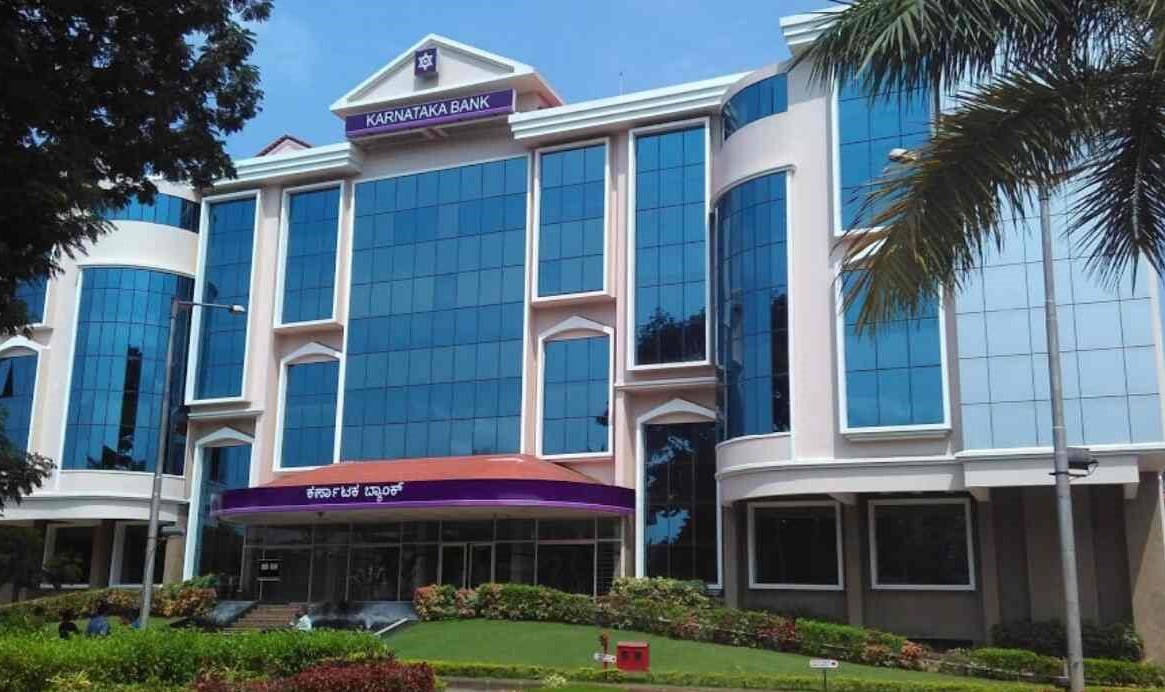

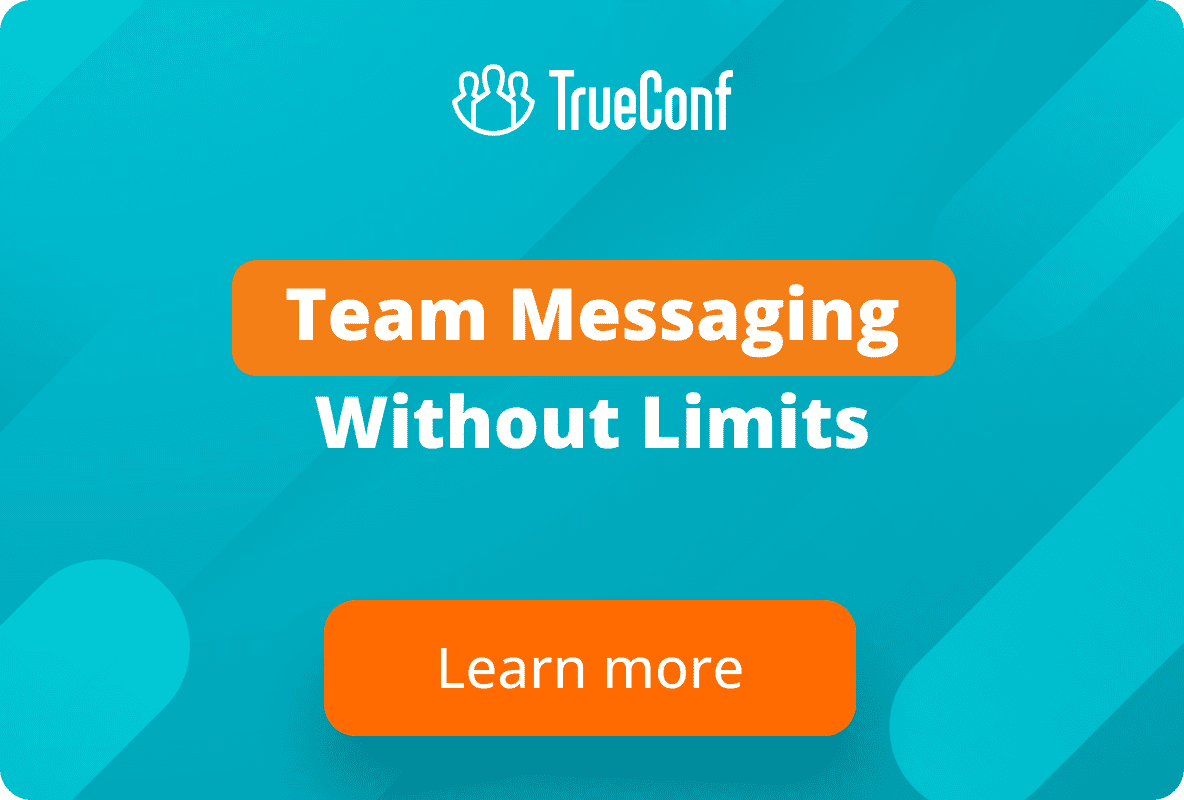
Follow us on social networks